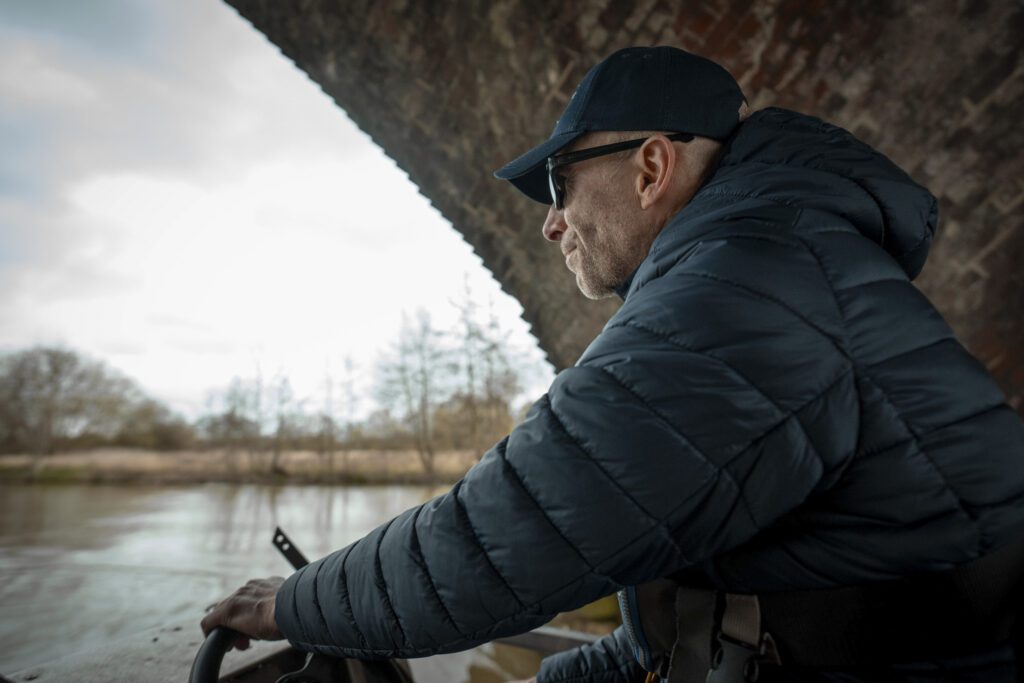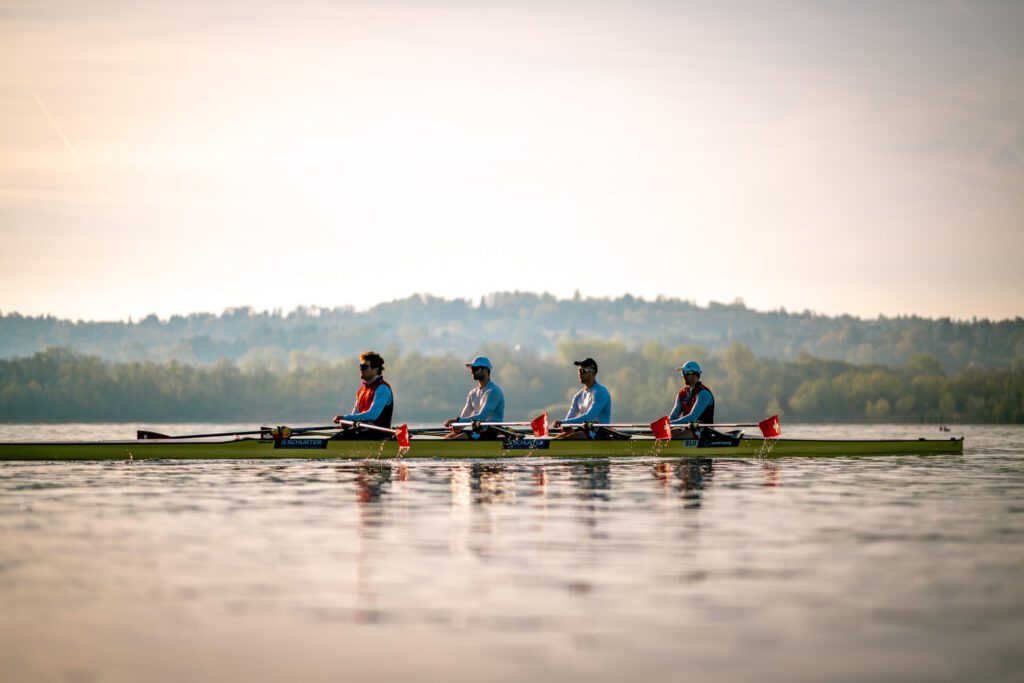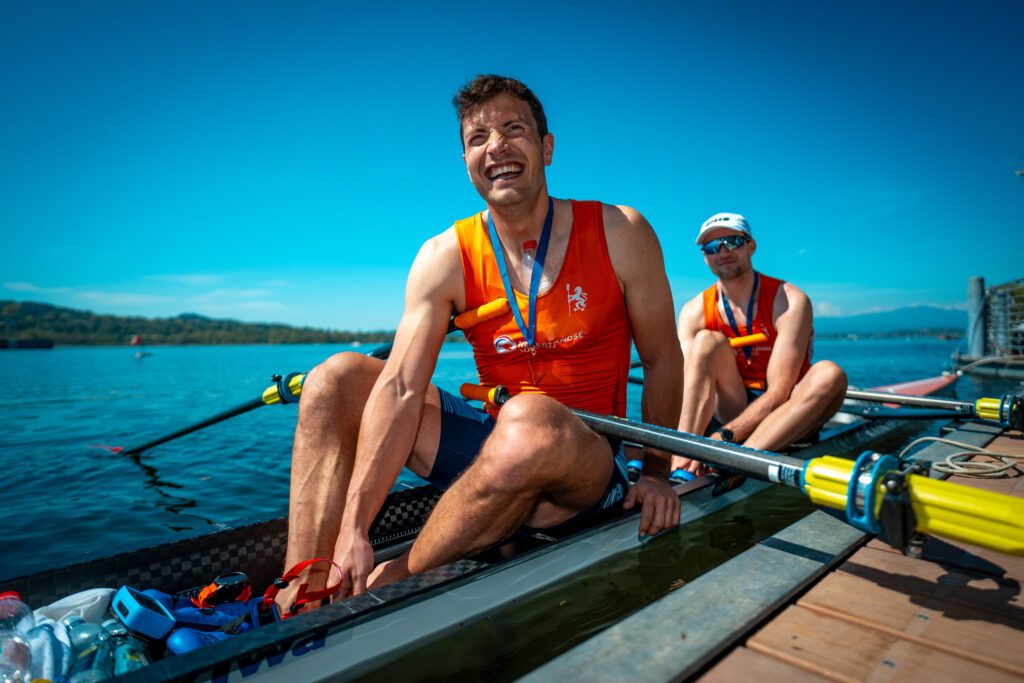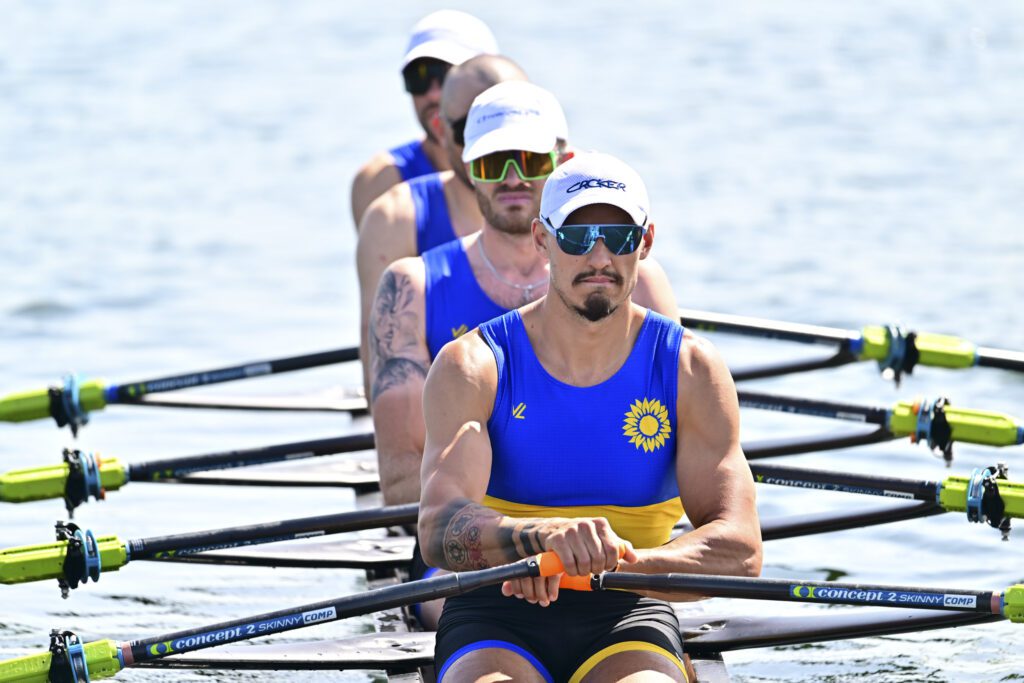It was amazing,” says John McAvoy, former maximum security prisoner turned indoor rowing world record holder, on rowing 263,560m (c. 163 miles) in 24 hours. “Out of every record and everything I did, that was the one that really opened up my eyes to what I was physically capable of doing, because it wasn’t just the physical element of it, it wasn’t just doing that much distance, it was the kind of belief that it gave me. It meant I knew that not only could I physically suffer but I knew mentally I had the strength too. No matter how bad things got, I knew I could mentally push through it”.
This was an early peak in McAvoy’s indoor rowing career – at one point he held all British indoor rowing records in his category but the 2k – but he has had deeper troughs than most. Rock bottom came on 14 November 2009. Inside his cell in the high security prison where he was serving eight years for conspiracy to commit armed robbery, McAvoy discovered that his closest friend had just died in a car chase in Holland whilst trying to steal £200,000. However, from this unlikely low, John McAvoy has rebuilt his life, and rowing played an integral part. By the time he was 18, he was immersed so deeply in the underworld that a prison sentence for the possession of a gun wasn’t enough to change his trajectory – indeed, it only made it worse.
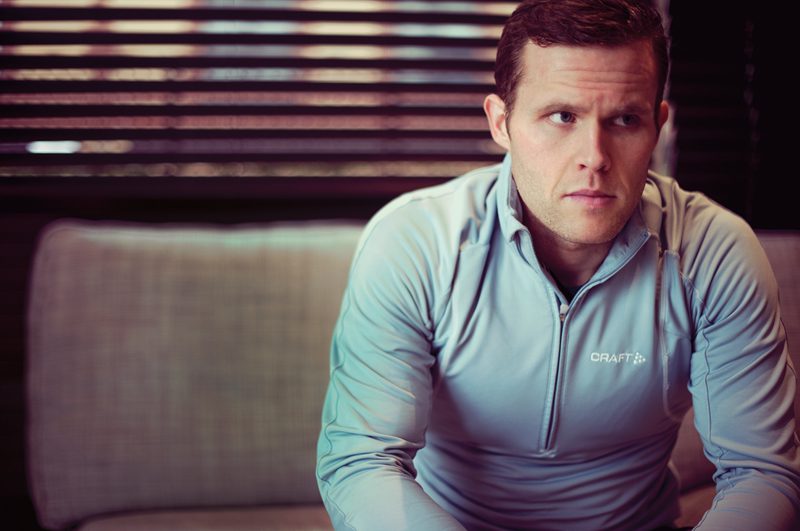
Credit Benedict Tufnell
Submerged in crime
High-profile crime surrounded him in his early days. His uncle, Mickey McAvoy, was part of the notorious Brinks-Mat armed robbery on a depot by Heathrow Airport. McAvoy’s father had died when he was young, and the influences on him growing up were pushing him almost inexorably towards crime.
“I wasn’t really aware of it until I got to the age of about 10,” explains McAvoy. “It was only then that I really started to get aware of the fact that people in my family, they were in the newspapers… when it’s round you that much and it’s 24 hours a day, you’re submerged in it”.
By the time he was 18, he was immersed so deeply in the underworld that a prison sentence for the possession of a gun wasn’t enough to change his trajectory – indeed, it only made it worse.
Jasper Jolly
McAvoy was clearly aged beyond his years by the experience, but perhaps the greatest influence was a disdain for a life of struggle that is led by so many.
“When I was looking at all these people around me that I thought were quite successful in life and had all the trappings of wealth, they went out and people showed them respect”.
By the time he was 18, he was immersed so deeply in the underworld that a prison sentence for the possession of a gun wasn’t enough to change his trajectory – indeed, it only made it worse. “I was given a higher standing within the criminal world,” explains McAvoy. “Then I got arrested again and ended up going back for a hell of a lot longer”.
McAvoy had joined Kevin Brown, who was 47 at the time, in plotting to rob armoured vehicles near Sudbury. However, the pair were caught and McAvoy was given an almost unheard of life sentence, with the added bonus of being a Category A prisoner – the highest level of offender in the system – because of his associates and consequently escape risk. At a succession of other prisons, including Belmarsh, McAvoy sat “literally rotting” in the company of criminals; the 32 year old even shared a wing at one point with notorious Islamist terrorist, Abu Hamza. He was to spend eight years behind bars.
Epiphany behind bars
It’s an extraordinary, dreadful start to adult life, but it is, in McAvoy’s telling, only the first part. He attempts to put some distance between his past and his future, a perception which was seemingly at odds with the fact that, until 2009, he didn’t show any inclination to leave a criminal upbringing behind. It took the death of a friend to change it.
Few people will have an epiphany in their lives, but those are the terms that McAvoy speaks in now. “That had a massive, massive effect on my life,” he says, understandably faltering slightly as he tries to explain coming to terms with his best friend’s death. “It kind of then… it’s like a light switch… it’s kind of hard for me to explain… a light just clicked on in my brain and I started looking around and I wanted to do something in my life and I wanted to actually achieve something meaningful”.
He decided to withdraw completely from crime, never to this day seeing his father’s side of the family. He was eventually moved down the security ranks to a lower category prison, where he was allowed three hours of gym time a week; it was here he discovered the rowing machine.
One day when completing a routine 10 kilometre piece, a prison officer, Darren Davis, noticed his time and told McAvoy that he could potentially challenge the official records. McAvoy started on the marathon and, once that was done, moved on to the 24-hour record. Splits of about 2:20s per 500m would break the old record, with sugar water as homemade energy drink. Davis sacrificed his day off to sit with him, keeping him motivated and certifying the distance for the record books.
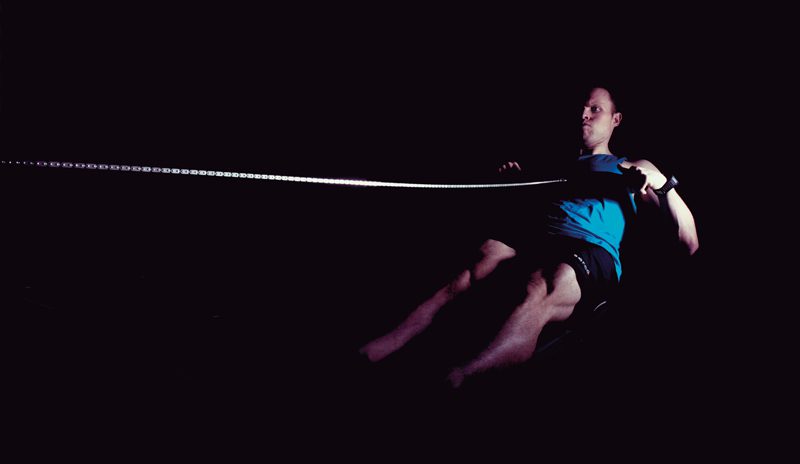
Credit Benedict Tufnell
“When we got to the early hours of the morning I really started feeling bad,” says McAvoy. “However I got to 6am and I completely woke back up”. At 2pm he broke the record, an achievement which granted him the confidence to rebuild his life outside of crime.
“I thought to myself, I’m getting the same sort of satisfaction, the same feeling doing this as what I was doing when I was committing crime, and earning money through crime, and earning money in general”.
“The Hollywood ending to what was already an amazing story was not to be”
Jasper Jolly
Way out
McAvoy firmly believes that sport has provided an outlet for his desire for status and success. “I was always wanting to earn money and I was always incredibly driven and incredibly focused,” says McAvoy.
As he continued to move through the prison system, records steadily tumbled, with the longest row record, at 45 hours, another stand-out. (“Just shy of two days,” he says. “I wish I had sat on it now for three more hours”.) Eventually he was allowed to get a job during the day at a local Fitness First, where he bumped into GB rowing squad member, Laura Wheeler. She trained him and suggested London Rowing Club, and the morning after regaining his freedom McAvoy was on the water learning to row properly.
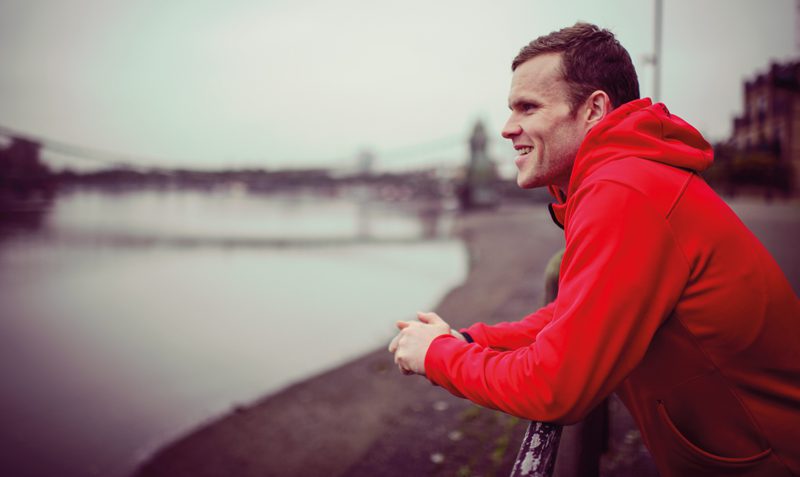
Credit Benedict Tufnell
The Hollywood ending to what is already an amazing story was not to be; despite his formidable physique, the technical aspects of rowing on water meant the GB squad was out of reach after spending his prime in a cell. “I missed the boat,” he cuttingly remarks. He then landed upon Ironman – a combined 2.4 mile swim, 112 mile cycle, and 26.2 mile marathon – as the discipline best suited to his extreme endurance capacity.
This year will see McAvoy aim to win his category at the European Championships in Frankfurt, followed by Ironman Wales in September. His ultimate aim is to qualify for the Ironman World Championships in Kona, Hawaii, in 2017, by which time he will hopefully have collected the extensive evidence of reformed character he will need to satisfy the infamously hard-nosed US visa authorities.
A different life
Although he has chosen to pursue another sporting path, it is still rowing which McAvoy credits for his reinvention as a character. “The only way I could have changed my life so dramatically would have been if I had left prison and moved abroad,” he says. “Rowing has changed my social circle that dramatically overnight”.
“What I’ve noticed is that rowing rewards hard work. It doesn’t matter if you’ve been to Oxford or Cambridge University, I have never once had any one person look down at me”
John McAvoy
Now, says McAvoy, his friends are professionals, even police and judges, and he has never experienced snobbery from what is usually characterized as a pretty exclusive sport. “What I’ve noticed is that rowing rewards hard work,” he explains. “It doesn’t matter if you’ve been to Oxford or Cambridge University, I have never once had any one person look down at me”. This attitude was maintained even when, in a stirring blog post, he revealed his story. “If it was an elitist sport, I would be the last person that they would want surrounding them”.
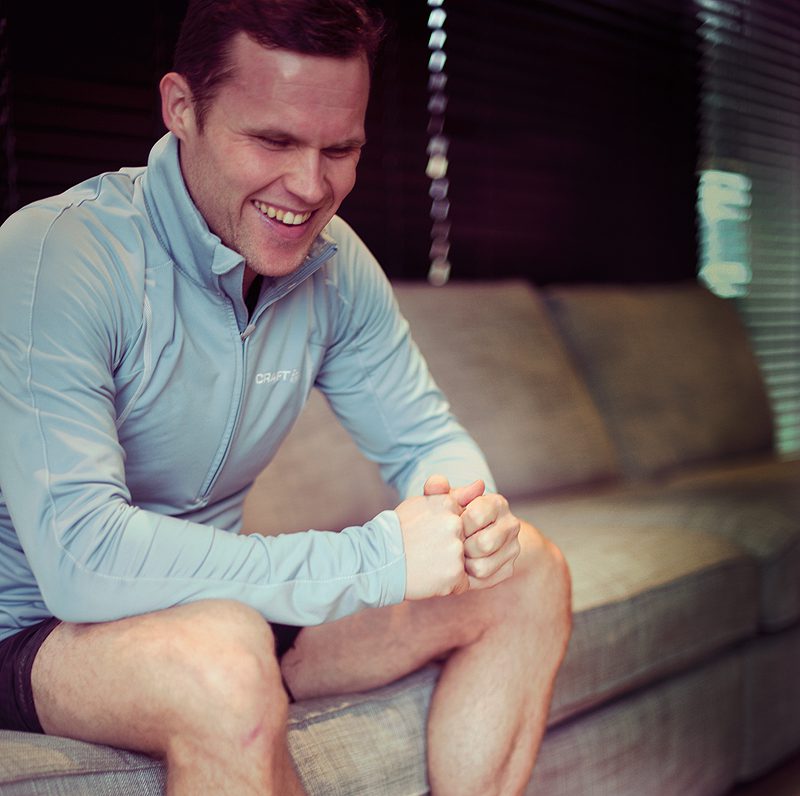
Credit Benedict Tufnell
While McAvoy is forthright about “this overwhelming desire that I’m going to be successful in life at something” (to the extent that he gently dismisses the idea of marriage or family any time soon) he has also started seeing how he could use his story to inspire others. McAvoy is currently working with the William Watts Memorial Foundation, providers of sports facilities to underprivileged young people at risk of offending, along with his sponsors, Serco.
“I can say to the young kids, if you think what I’ve done up to this point is amazing then imagine what you can achieve if you change now,” he says. “If I can get one of those kids not to go down that road in life, and not to spend their whole lives in prison I’d be happy with that. Completely happy with that”.
For now though, everything he does is aimed at winning in Kona. For someone so new to endurance sport, McAvoy’s confidence is so definite that it can sound naive, but it’s difficult to deny someone who has already come so far. “I know I will do it, and that’s what motivates me every day, to keep wanting to be better,” he says. “I am absolutely one million percent convinced that I will do what I set out to do. Until I do it I won’t stop”.
This article first appeared in

